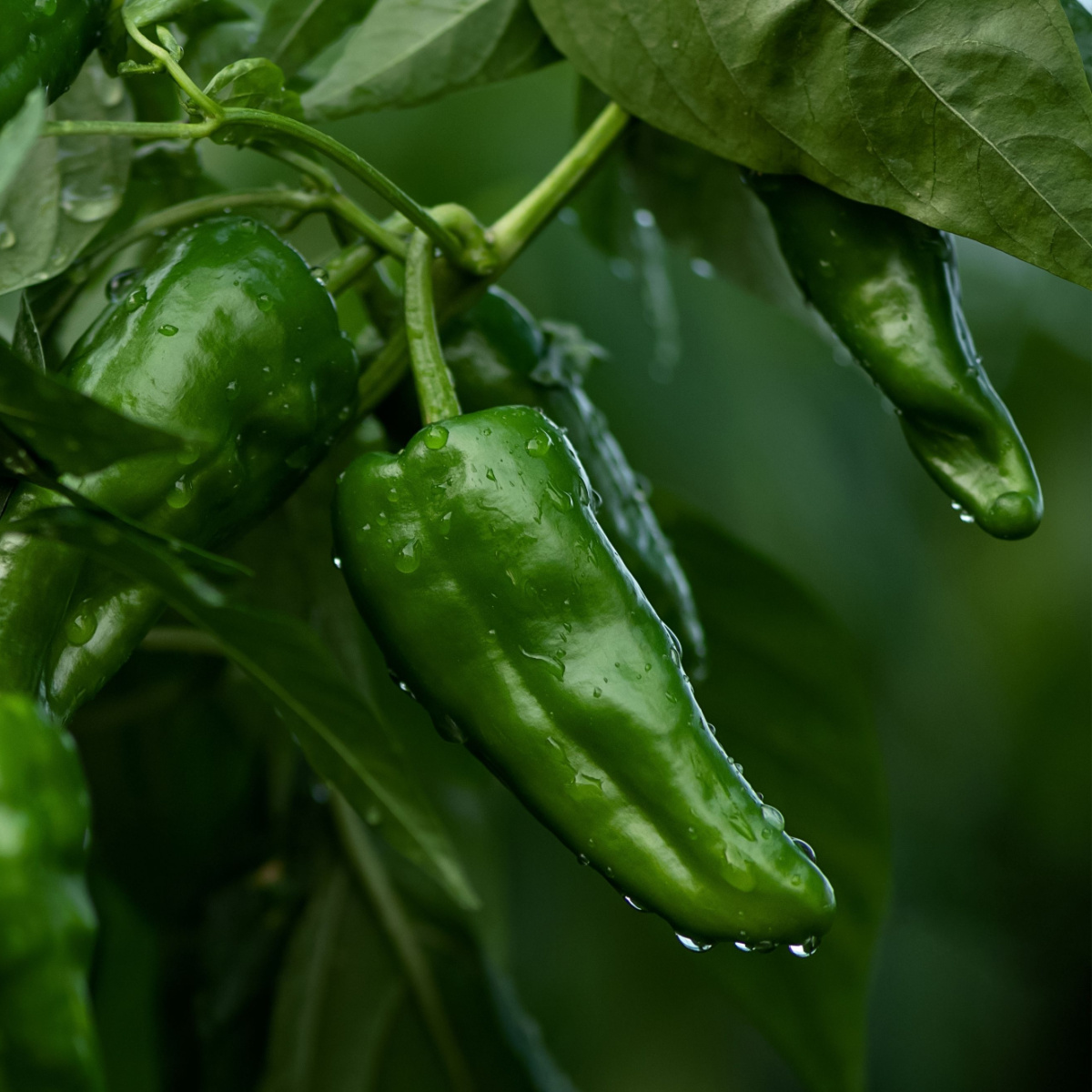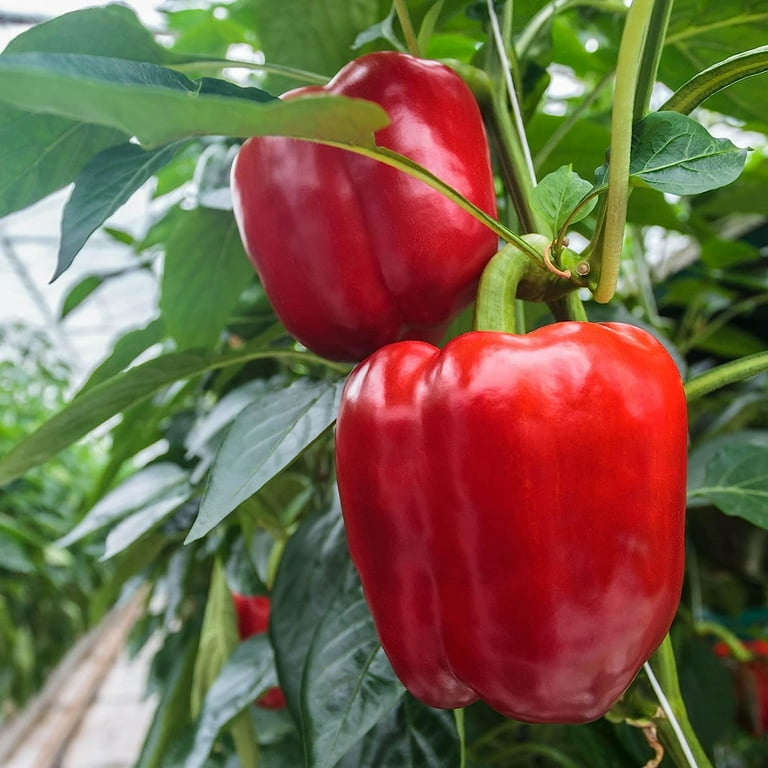Best Fertilizers for Peppers: Increase Development and Flavor Naturally
Best Fertilizers for Peppers: Increase Development and Flavor Naturally
Blog Article
Organic Vs. Synthetic Fertilizers: Which Is Best for Supporting Healthy And Balanced Pepper Plants?
In the realm of supporting healthy and balanced pepper plants, the selection in between synthetic and natural fertilizers stands as an essential decision with far-reaching implications. While both alternatives purpose to provide essential nutrients to support plant growth, the nuances of their influence on the soil, plant health and wellness, and the atmosphere trigger an argument that echoes throughout the gardening area. Comprehending the distinct advantages and possible mistakes of each fertilizer kind is essential for pepper cultivators looking for to maximize their returns while maintaining an eco-conscious and sustainable strategy.
Benefits of Organic Plant Foods
Organic plant foods provide a sustainable and environmentally-friendly method to nourishing pepper plants, giving vital nutrients without the usage of synthetic chemicals. These natural fertilizers are originated from organic sources such as compost, manure, bone meal, and seaweed, promoting dirt health and biodiversity. Unlike artificial plant foods, organic options release nutrients slowly, ensuring a balanced and constant supply for pepper plants to grow.
One substantial advantage of natural fertilizers is their ability to enhance dirt structure and water retention. By boosting dirt health and wellness, natural fertilizers advertise beneficial microbial activity, which aids in nutrient uptake by pepper plants. In addition, organic fertilizers decrease the threat of chemical run-off, safeguarding water resources from air pollution and securing the environment.
In addition, organic fertilizers add to long-term dirt fertility by promoting the growth of useful soil organisms. These microorganisms assist break down natural matter, releasing nutrients in a form that is easily obtainable to pepper plants. best fertilizers for peppers. By fostering a healthy dirt community, natural plant foods sustain lasting pepper farming techniques that profit both plants and the atmosphere
Disadvantages of Artificial Plant Foods
Artificial plant foods, in comparison to their organic counterparts, pose numerous downsides when used to nurture pepper plants, impacting both plant health and ecological sustainability. One significant drawback of artificial plant foods is their propensity to seep nutrients from the soil rapidly.
Furthermore, the overuse of synthetic fertilizers can add to water air pollution. Excess fertilizers not soaked up by plants can get rid of into water bodies, resulting in eutrophication, where algae flowers diminish oxygen degrees in the water, hurting marine life. Moreover, artificial fertilizers are commonly originated from non-renewable resources, such as fossil gas, adding to carbon exhausts and environmental deterioration throughout their production.
Nutrient Absorption Comparison
When contrasting natural and synthetic fertilizers in terms of nutrient absorption, organic fertilizers have the benefit of giving a more well balanced and slow-release source of nutrients. Organic plant foods contain a selection of macro and trace elements that are not only beneficial for the plants but also advertise healthy and balanced dirt microbial activity, which aids in nutrient uptake.
Moreover, organic fertilizers improve soil framework and water retention ability, allowing pepper plants to gain access to nutrients a lot more effectively. This improved soil top quality facilitates root advancement, making it possible for much better nutrient absorption. Artificial plant foods, although initially enhancing plant growth because of their high nutrient concentrations, might hinder long-lasting nutrient absorption by derogatory soil wellness in time.
Environmental Impact Factors To Consider

On the other hand, artificial plant foods, although usually more concentrated and promptly readily available to plants, can have detrimental results on the environment if not applied correctly (best fertilizers for peppers). Their production requires high power inputs, bring about greenhouse gas exhausts and adding to environment modification. Additionally, the overflow of excess artificial fertilizers can infect water sources, resulting in eutrophication and damaging water environments.
Finest Plant Food Practices for Peppers
To accomplish this, it is important to follow ideal fertilizer practices tailored to the particular demands of pepper plants. One vital technique is to perform a soil test before using any fertilizers.
Another essential technique is to fertilize pepper plants at the best time. Typically, peppers gain from receiving fertilizer at growing and then once again when they start to flower. Over-fertilizing can lead to vitamins and mineral discrepancies and hurt the plants, so it is crucial to comply with advised application prices.
Furthermore, selecting a well balanced plant food with an NPK ratio that matches pepper plants' needs is fundamental. Organic plant foods, such as garden compost or manure, can be outstanding selections as they launch nutrients gradually and improve dirt framework gradually. However, artificial fertilizers can supply a quick nutrient increase when needed. Inevitably, integrating organic and synthetic plant foods deliberately can assist nurture healthy pepper plants while lessening ecological effect.
Conclusion

Organic fertilizers offer a sustainable and environmentally-friendly method to nourishing pepper plants, supplying click site necessary nutrients without the use of synthetic chemicals. Unlike synthetic plant foods, natural alternatives release nutrients gradually, making sure a well balanced and constant supply for pepper plants to prosper.
Synthetic fertilizers, in comparison to their organic equivalents, posture numerous downsides when used to nourish pepper plants, impacting both plant wellness and ecological sustainability. When comparing synthetic and natural fertilizers in terms of nutrient absorption, natural plant foods have the benefit of supplying a much more balanced and slow-release source of nutrients.Furthermore, organic fertilizers enhance soil framework see and water retention capability, permitting pepper plants to accessibility nutrients a lot more efficiently.
Report this page